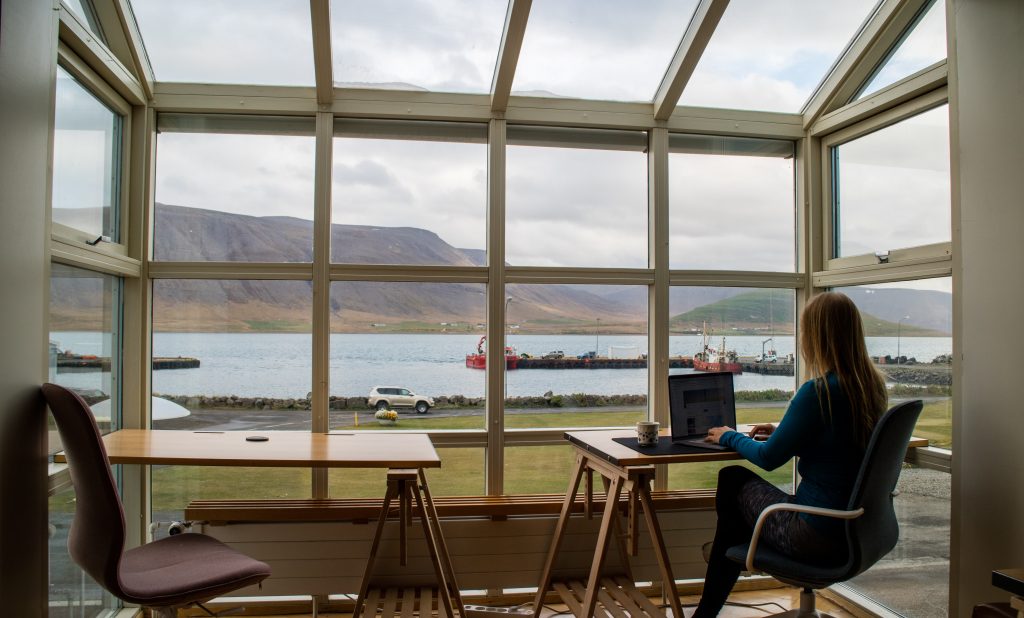
This week we published our latest research “Resetting Normal: Defining the New Era of Work” that captures input from 8,000 office workers in eight countries and explores how attitudes have changed during this pandemic period.
Its findings highlight the gaps – between current performance versus future employee expectations – that businesses need to close in order to position themselves as an employer of choice in the future era of work.
While there are subtle but important variations in needs and attitudes between countries, there are strong common themes with technology that facilitates remote working considered a top priority. Workers are also keen to maintain a good work/life balance post-COVID-19 and digital skills are also seen as a priority across all countries. More than eight in 10 workers in Spain (83%) and the USA (85%) – the top scores in the overall poll – say digital skills are important.
Topline differences between countries include workers in Australia and the UK placing more importance of their employer providing leadership in times of pandemic, while their counterparts in France and Japan have less confidence in their company’s response. French and Japanese workers are also least likely to feel their work-life balance improved during the pandemic.
Overview of findings by country:
Australia – positive about work-life balance and optimistic for the future
Australian workers were satisfied with their work regime prior to COVID-19 and were most positive about working life during the pandemic, with employees feeling better equipped to work and communicate remotely. Post-pandemic, nearly half (49%) of the workers polled said they were optimistic about improvements in the future world of work – a full 19% above the average for all countries. The technology that facilitates this remote working will be increasingly crucial for Australians, with 87% agreeing its importance – the highest result across the survey.

France – coping with adversity and a thirst for new skills
Most French workers felt most positive about their working life during the pandemic but are also most willing to change jobs within the same sector if there is an opportunity to learn new skills – something for employers to factor-in as they come out of lockdown and competition for talent increases. More than four in 10 workers surveyed in France appear to express the desire to develop new skills through moving to a different job – and this is the highest score among all countries on this issue. Post-pandemic, workers in France seem less concerned about their managers displaying a leadership style characterized by collaboration, problem-solving, adaptability or empathy.

Germany – workers enjoying more autonomy with expectations on a new leadership style for the future
In Germany, the vast majority of workers (86%) were able to set their own working schedules during the pandemic, which was a third higher than the average for the other countries in the survey. For the future, half of German workers expect little change in their working situation during the post-COVID-19 recovery phase, whereas the average across all countries sees only 38% of workers sharing this view. However, in this same period, German staff do want to see managers focusing on empathy and nurturing team morale, with three quarters of those surveyed (76%) saying their manager should make these areas a priority.

Italy – companies set the schedules, but leadership must step up on future collaboration and support
Moving to southern Europe, during the pandemic, Italian workers had a markedly different experience than their German counterparts, with nearly six in 10 (59%) reporting that their working schedule was completely set by their company. But they do share the hopes of their German colleagues when it comes to what the future holds, post-COVID-19. Three-quarters of Italians surveyed want to see managers focus on collaboration, problem-solving, adaptability (77%), and develop a leadership style based on empathy and a supportive attitude (74%). On the negative expectations, post-pandemic, Italians are generally more pessimistic about the future world of work, with four in 10 expecting to have to work excessive hours.

Japan – little improvement expected on work-life balance in a post-COVID-19 world of work
Japan was characterized by a ‘steady as you go’ attitude as employers were less likely to reduce the workforce, delay promotions or place a freeze on new hires during the early phases of the COVID-19 outbreak in the country. Workers did, however, feel that an overall dissatisfaction with their work motivation and work-life balance prior to the pandemic showed a slight shift to being more positive during the outbreak, but have low expectations on employers implementing more flexibility about how and where to work in the future. In addition, this sample of Japanese workers were the least interested in their managers placing more trust in them in future, with only 6 in 10 (59%) Japanese expecting this to happen, versus a near 80% of workers across all countries expecting to be afforded more trust. Just over half (55%) of Japanese workers polled expect a change in leadership style with managers showing more empathy and a supportive attitude, post-COVID-19. This is in contrast to the near three quarters (74%) of workers across all countries who expect managers to display these traits, led by 84% of Australian workers.

Spain – skills and time management improve, but concerns remain about working hours
Spanish workers reported an improvement in their digital and time management skills during the pandemic. But they also have the most pessimistic view about the world of work for post-COVID-19 with more than half of them expecting it to be worse than before – 20% higher than the total for all countries. Drilling down into this concern reveals that a significant minority (44%) of Spanish workers expect to be working excessive hours, while nearly eight in 10 of them do expect the companies and managers to provide the right support for their mental health and wellbeing.

UK – clarity over expectations and efficient remote working gives workers confidence – and expectations for the future
Overall, UK workers were satisfied with their pre-pandemic working life. During the outbreak, clarity over what workers were expected to deliver – together with confidence in the effective use of remote working platforms and systems for communicating with others – led to them feeling that they were better equipped to work during the pandemic. Taking up this theme for the future, more than three quarters (77%) of UK workers expect managers to provide advice and guidance on effective remote working. On the wider issue of leadership style, eight in 10 (80%) UK workers expect their managers to show empathy while promoting team morale and culture in the post-COVID-19 world.

USA – great optimism for the future, tempered by concerns over post-pandemic working hours
In America, a positive pre-COVID-19 attitude to work transfers into the lockdown period with more than eight in 10 workers reporting high levels of motivation (87%) and a good work-life balance (86%) during the pandemic. This was matched by similar scores on clarity over the nature of their work and the tasks they were expected to perform (85%). As with the UK, this was underpinned by high levels of confidence in working on remote platforms and communication systems (85%). The USA had the largest proportion of short-hours worked during the pandemic (22%) versus the average across countries of 17%. In terms of expectations for the future, nearly nine in 10 (88%) American workers want to see their managers place trust in them to get the job done, matched by a similar proportion (85%) who expect the company to provide the right equipment for remote working. A significant minority (43%) of US workers expect the future to be better – a full 13% above the average score for all countries, although this is tempered with a similar proportion (44%) having concern about the prospect of working excessive hours, post-pandemic. More US and Spanish workers cite this concern across the survey – 7% more than the average scores for all countries.

